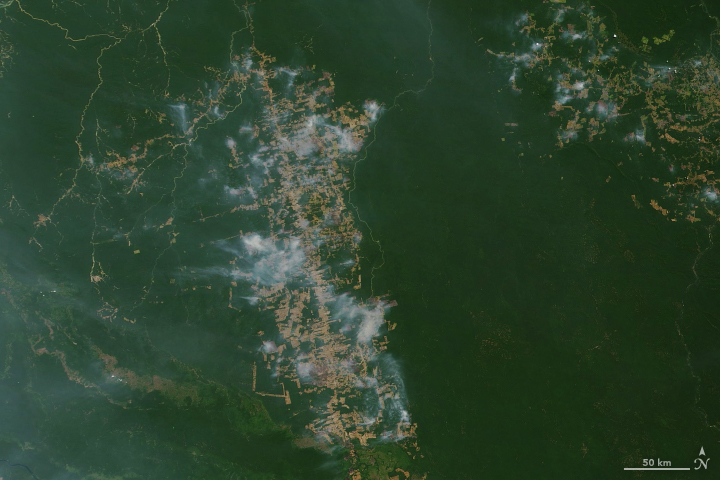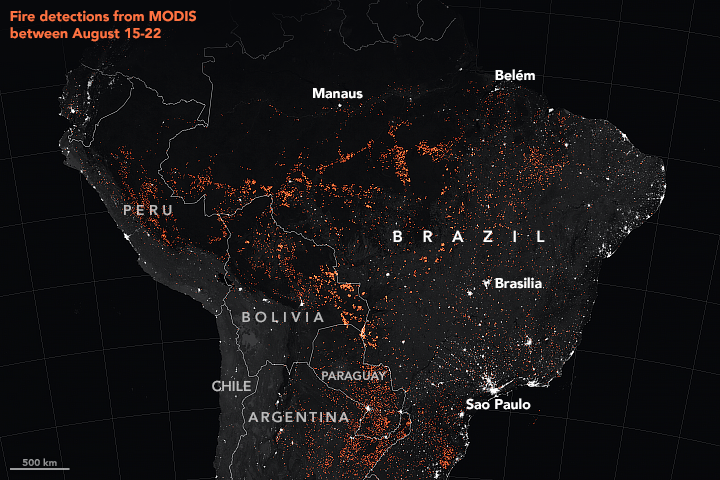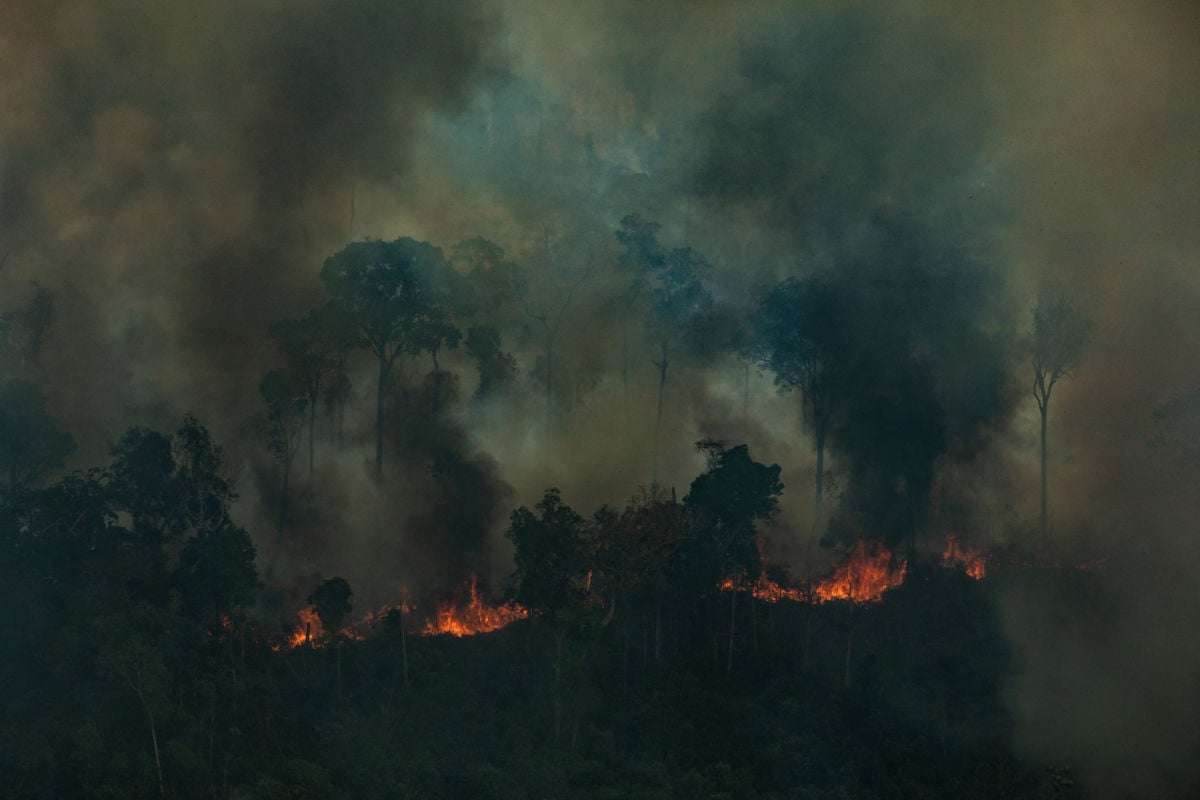The world is burning.
Record or near-record temperatures, combined with drought in many areas, are contributing to yet another record-setting summer for wildfires. California has been largely spared so far this year, but wildfires in the Amazon rainforest and in or near the Arctic Circle are ringing alarm bells, as is a sharp increase in wildfires in Southern Europe.
As many of these fires are occurring in remote areas, they may not pose a major threat to densely populated areas, but rural populations, particularly Indigenous groups, are being affected. And whatever the immediate human toll, the fires do not bode well for humanity’s future.
Scientists are trying to determine the cause of all these wildfires. In Greenland and Alaska, record or near-record high temperatures have contributed to the upsurge in wildfires. Similar conditions may account for what may turn out to be a record year for wildfires in Siberia, where the smoke generated by the fires is covering a land area about the size of Europe. In Brazil, however, political extremism is the culprit, not nature. A relaxation of environmental regulations by the pro-business Jair Bolsonaro government has given ranchers and farmers license to set wildfires for purposes of converting tropical forest to agricultural use.
The European Forest Fire Information System (EFFIS) reports that, as of August, wildfires in Europe this year are occurring at a rate three times higher than the average over the past decade. The World Wildlife Fund recently looked at the sharp uptick of wildfires in Southern Europe and concluded that 96 percent of those fires are attributable to human activity; only 4 percent are caused by natural occurrences. Drought and scorching heat, however, are fanning the flames.


A technical report written for the European Commission in 2017 warned that the danger of forest fires driven by weather is likely to increase with the climate changes affecting countries in the Mediterranean — especially Spain, Portugal and Turkey — but also including Southern Italy and parts of Greece. The size of this year’s outbreak appears to confirm that diagnosis.
Wildfires, it must be emphasized, are nothing new, and it is even possible in some areas that climatic changes will reduce the risk of wildfires, but the environmental stakes today are extraordinarily high.
In the Amazon, wildfires are contributing to soil erosion and localized droughts and, as a result, accelerating the eventual collapse of the Amazon ecosystem, the world’s biggest carbon sink. That would constitute a global disaster, as the Amazon Basin absorbs an estimated one-quarter of the carbon dioxide released every year from the burning of fossil fuels.
Wildfires in Siberia may hasten the melting of permafrost, thus releasing the carbon stored there, but Siberian wildfires may also be accelerating the loss of Greenland’s icecap. Smoke from the Siberian wildfires of 2012 raised alarm bells when 95 percent or more of the Greenland ice sheet experienced some degree of melting as a result of the soot deposited by the Siberian wildfires.
This summer, wildfires spread in Greenland as well as Siberia. In Greenland, it’s not the forests that are burning; Greenland has very little forest cover. It’s the grasses and other ground cover that have become fire tinder.
Because of the wildfires and record-setting heat in Greenland this summer, scientists are warning that an estimated 400 billion metric tons of ice could either melt or be calved off. If the Siberian wildfires and the hot summers in Greenland become common occurrences, the implications for sea rise would be staggering, as the complete melting of Greenland’s ice cap would raise sea levels by an estimated 20 feet.
The world may be burning, but climate change is still not a burning issue for President Trump, many of his allies in Congress, and even some parliamentarians and political leaders in Europe.
Climate change denial may actually be on the wane in the U.S., where wildfires, hurricanes, droughts and heatwaves are beginning to erase public doubts, particularly in the Western states. But right-wing leaders in Europe, including Italy’s Matteo Salvini, are seeking to undermine the European Union’s commitment to fighting climate change, and depending on how strong the populist winds blow, they may ultimately succeed. If so, hopes of fulfilling the Paris climate agreement will fade.
Time is slowly running out. The world may be on fire, and the alarms have sounded, but the fire brigades have yet to arrive.
This article was produced by Earth | Food | Life, a project of the Independent Media Institute.
Join us in defending the truth before it’s too late
The future of independent journalism is uncertain, and the consequences of losing it are too grave to ignore. To ensure Truthout remains safe, strong, and free, we need to raise $24,000 by the end of today. Every dollar raised goes directly toward the costs of producing news you can trust.
Please give what you can — because by supporting us with a tax-deductible donation, you’re not just preserving a source of news, you’re helping to safeguard what’s left of our democracy.
